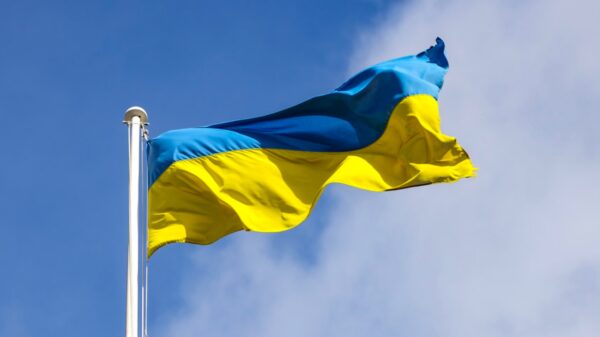Comment Editor Hanna Pham on how Britain turning its back on Ukrainian refugees represents a history of hostility and prejudice to those in need
According to the European Union, up to 4 million Ukrainians will flee their country in the coming months as a result of the recent Russian invasion. As of right now, 1 million Ukrainians have entered countries like Poland, Romania, Slovakia, and Hungary. Poland comes in at the top of refugees admitted as out of the 500,000 so far, 280,000 have been accepted by Poland. The list of countries’ relaxing visa and asylum requirements continues to grow. Ireland has scrapped visa requirements and the entirety of the EU is set to offer the right to settle for three years without an asylum visa.
With so many European countries are quickly shedding visa requirements and allowing for the influx of refugees it begs the question: what is the British government doing?
Well, at best, the Government is initiating a slow response to help the influx of Ukrainian refugees into the rest of Europe. At worst, it’s abdicating its responsibility by making it near impossible for asylum seekers to come to the UK and resettle.
The Nationality and Borders Bill
As of right now, the Nationality and Borders Bill is sitting in the House of Lords, garnering much controversy. Officially the bill aims to “fix the broken asylum systemâ€, bearing in mind three key objectives. Firstly, to create a fairer and more effective system to protect those in “genuine need of asylumâ€, decrease illegal entry and combat trafficking networks, and remove illegal immigrants already in the UK. These vague descriptions of improvement, fairness, and efficiency cover up the actual, nasty goals of the bill.
According to the UN refugee agency, UNCHR, the bill would make it more difficult for refugees to enter the country, and make the nearly impossible to attain asylum status. The most worrying part of the bill in the context of the Ukrainian refugee crisis is Clause 11. Clause 11 penalises refugees based on how they arrive in the UK. Methods that would be deemed illegal include small boats or being stowed away in trucks. Since the Russian invasion has led to the suspension of civilian flights from Ukraine to the UK, these “unauthorised routes” are the only way to get to Britain.
Herein lies the anti-humanitarian core of the problem: upon arrival in the UK, Ukrainian refugees are given a choice of either imprisonment or short-term status in which they have no access to benefits. As pointed out by Hannah Green, Ccmmunication officer from City of Sanctuary, a charity aimed to support refugees, “when your life is in danger, there is no time to queue at the embassy and then patiently wait months, even years, for the correct visa.â€
Green adds that the British government’s pursuit of the anti-refugee bill is not a reflection of public sentiment as evidenced by the “huge ground surge of support that we, the people, want to show welcome to those forced to flee their homes.†Not only do statistics corroborate this statement — a recent YouGov poll found that 76% of Britons welcomed the idea of allowing Ukrainian refugees into the country — if you’re on any form of social media, you are guaranteed to come across information regarding dates and times for protests against Vladimir Putin or donation points for Ukraine. Some popular ones include Trafalgar Square gatherings in solidarity with Ukraine and The Polish White Eagle Club in Balham for donations. In fact, Green continues, the bill, “would have a deliberate, devastating impact on the rights of refugees, migrants and people of colour.â€
Historical Attitudes Towards Refugees
Historically, Britain’s treatment of refugees and immigrants have had negative repercussions on those historically marginalised groups. It is not the first time Britain has denied refugees as war raged in Europe. The notion of only allowing in “genuine†refugees was seen with the systemic denial of Czechoslovakian, Austrian, and German Jews during Adolf Hitler’s blitzkrieg across Europe. Even after Germany annexed Austria in 1938, the British government moved to restrict the number of Jewish refugees let into the country. By 1939, 7000 refugees were let into the UK, but that pales in comparison to the half a million that were denied entry. Furthermore, during the breakup of Yugoslavian states in the 1990s, the UK did little to take in and ease the asylum system for refugees from Kosovo.
According to Green, the past ten years have showcased the continued hostility towards refugees. Among other issues is a “culture of disbelief that sees LGBT+ refugees forced to ‘prove’ their sexualitiesâ€, long waiting times where finding work is banned has led many asylum seekers into poverty. Unlike the rest of Europe, the UK has no maximum time allowance for how long someone could be held in an immigration detention centre. If anything, current attitudes towards refugee resettlement are consistent with previous mindsets.
This hostility and mistreatment is only accurate when looking at the government’s response. Charities like City of Sanctuary are ready to welcome in Ukrainian refugees with open arms. As Green says “we are campaigning for the government to cut the red tape and do everything they can to support people forced to flee Ukraine.”
Refugees of Colour
While Jewish refugees were definitely “othered†in their treatment, refugees of colour have faced harsh and neglectful treatment from the British government and public alike.Â
The UK government’s response, or lack thereof, to help Ukrainian refugees is, unfortunately, par for the course. For non-white immigrants, in particular, it represents a larger pattern of systemic mistreatment of immigrants, refugees and minorities. Following the civil war in Sri Lanka, a former British colony, in the early 2000s an influx of Tamil refugees came into the UK to escape persecution. Rather than help resettles Sri Lankan asylum seekers, an overt urge to expel non-nationals swept over the British government. The Home Office declared that it was “safe enough†to take away refugee status and for asylum seekers to return to their homeland even though A UN Special Rapporteur on Torture found that security forces continued to persecute and torture Tamils and were not guaranteed protection against these security forces. This is just one of many examples throughout history.
For me, the idea of uprooting and fleeing for safety are not just news headlines I feel sad about from a distance. As the daughter of a refugee, those themes overshadow the inner workings of my family and my own identity. I come from a family of Southern Vietnamese refugees who eventually settled into the United States after the Vietnam War alongside around 125,000 refugees from Vietnam, as well as the surrounding countries of Laos and Cambodia. 90,000 refugees were able to make new lives in Australia. Britain accepted 20,000 amidst a wave increasing “anti-immigration rhetoric” under then-Prime Minister Margaret Thatcher. As illustrated with the the Nationality and Borders bill and the general contempt for Ukrainians, this anti-immigration wave is still being rode by Parliament.
I want to be able to be shocked at the British government’s current negligence and lack of sympathy for Ukrainians, but considering historical anti-refugee sentiment it’s a consistent response. Just because the UK generally has a hands-off approach to refugee resettlement, doesn’t make it any less immoral. The real crisis is not Ukrainians fleeing for their lives through “unauthorised routesâ€, but as Green puts it “what we see happening in the UK is a crisis of compassion in which the British government is continuing to pursue an exclusionary, anti-humanitarian agenda towards refugees”.
















